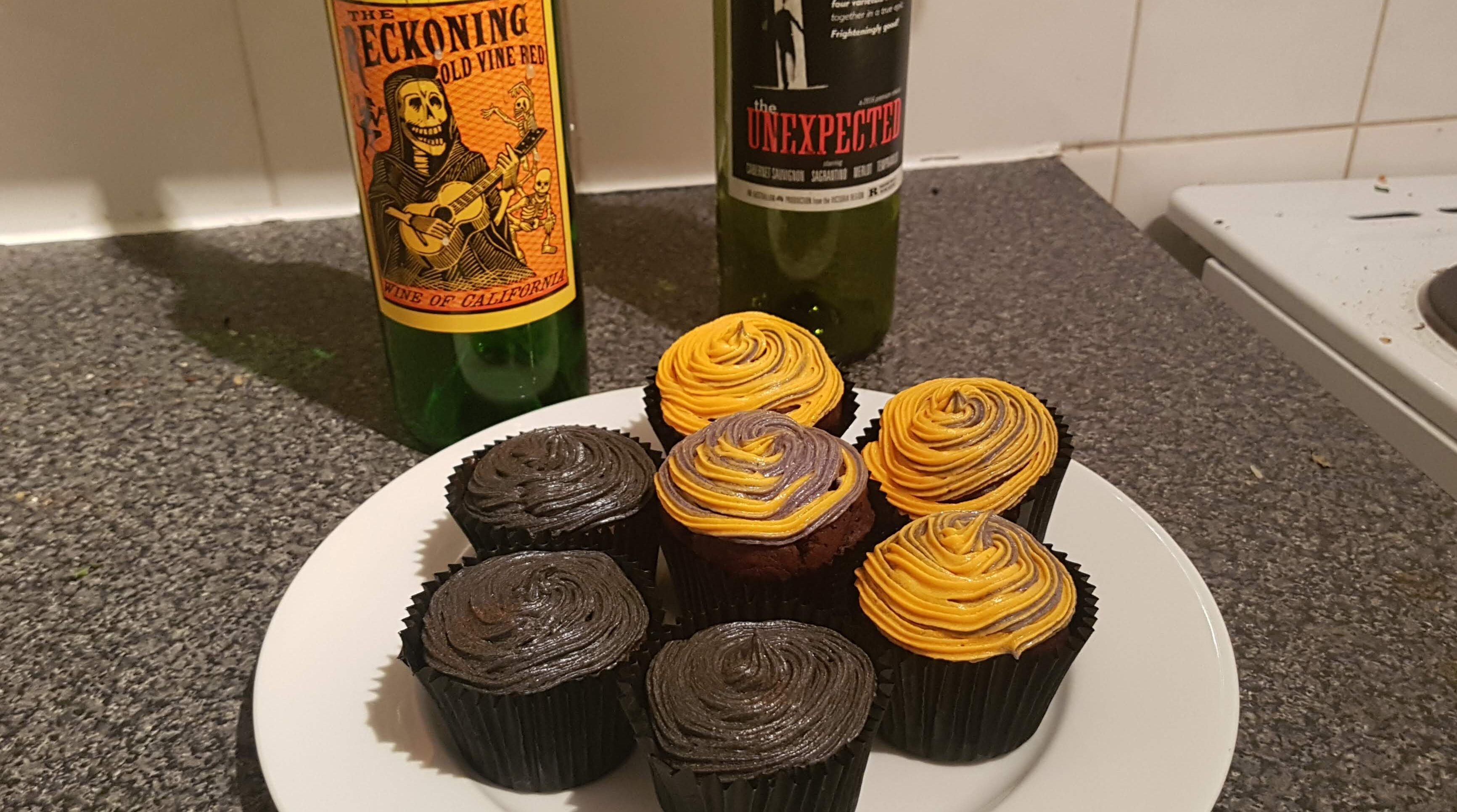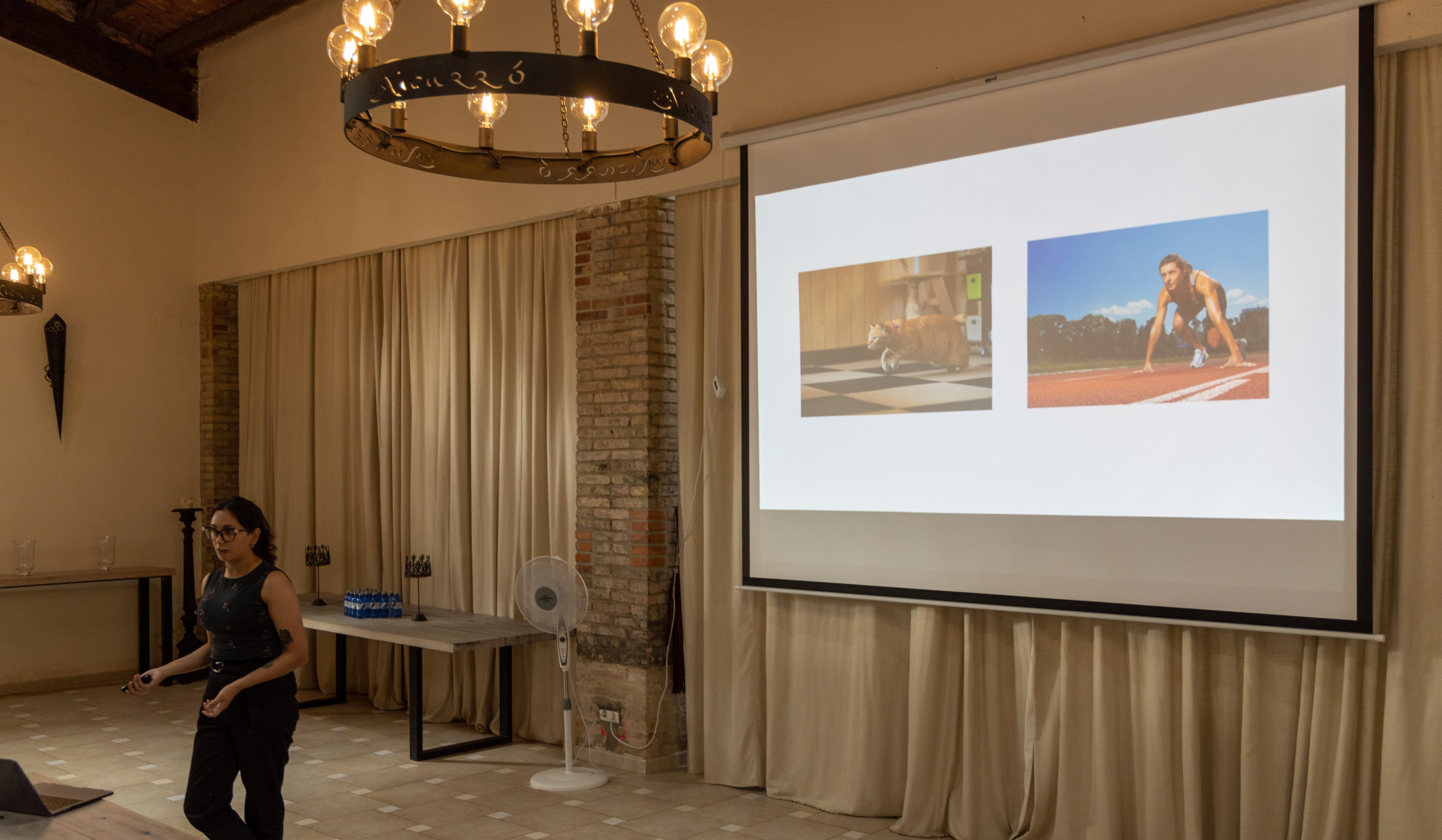Conquering fears during your PhD…

…by Michelle / from Mexico / PhD Integrative Physiology / 3rd Year
My favourite way to celebrate this time of year is baking a batch of Halloween inspired cupcakes and then eating them while curled up on my sofa watching a scary movie. Horror movie enthusiasts like me will agree that being scared can be great fun, especially when we are in the safety and comfort of our homes. In real life, however, facing our deepest and darkest fears is not a pleasant experience. And let’s be honest…doing a PhD is scary.
Now that the 3rd year of my PhD has officially begun I have been reflecting on my journey so far. When I think back to when I just started, I remember being extremely excited but, to be honest, also scared. In retrospect, some of the fears I had were a bit silly, like not being able to cope with the Scottish weather (update: I can, but barely!), while others were legitimate fears that I have had to work hard to overcome.
So, to celebrate the spooky season and my favourite time of the year I have created a list of 3 fears I have conquered during my PhD:
1. Fear of not knowing the right answer
Although public speaking is one of the most common fears among PhD students, it has never really been a problem for me. Years of theatre and dance lessons during my childhood and teenage years have resulted in me being more than happy to go “on stage” and give talks or presentations. However, the idea of having to answer questions from the audience (or even worse, from my thesis committee!) used to send shivers down my spine.
The first couple of times I presented my PhD work, I was terrified of being asked a question I didn’t know the answer to. I used to spend hours imagining how embarrassed I would feel if I said something stupid, or worse yet, if I panicked and wasn’t able to say anything at all! Fortunately, by the time I started my 2nd year, I discovered a simple yet powerful weapon to beat this particular monster: the phrase “I don’t know”. No one expects PhD students to know everything, not even about our own projects. We are always in the process of learning and discovering new things and acknowledging what we don’t know during a question can fuel interesting discussions about our work. Now I understand that audience members don’t ask questions to test me but because they are genuinely interested, and every question is an opportunity to think about my project from a different perspective.

2. Fear of losing passion for my project
Before I went to University back in my home country, I decided to give professional dancing a try. Sadly, it wasn’t for me. I started feeling that I was doing it because I had to, not because I wanted to. And when I started my PhD, I was worried the same thing would happen again. Science was the thing that I loved the most and I was scared to lose that.
Even though for the most part I enjoy what I do and have fun doing experiments, the truth is some days I don’t come to work with a big smile, pumped for the day ahead. Sometimes I’m tired and stressed and start wondering if it’s all really worth it. But I think that’s OK, and the feeling doesn’t frighten me anymore. I still do my best those days because I know that soon I will have exciting new data. Being passionate about my project doesn’t necessarily mean I’m always excited and want to talk about it non-stop, it means that I do every step of my experiments with care and meticulousness, even when I’m having a bad day.
Some days in the lab are not as great as others but looking back at even the worst day I’m convinced there’s no other job I’d rather do.
3. Fear of failure
At the beginning of my second year I experienced the worst imposter syndrome I had ever felt. I was tasked with setting up a pretty complex experiment and didn’t really know where to start. After many failed attempts I started panicking. “Maybe I just can’t do it” I thought as I pictured myself being kicked off my program. A few weeks later, however, it was done. I learned a lot from that experience, mostly about 2-photon calcium imaging, but also about myself. I was the right person for the job not because of my expertise in imaging (which was non-existent!) but because I can be resourceful and creative. Now, whenever I take on a daunting task, I think back to that moment and feel a bit more confident that I will figure it out.
But in reality, no matter how confident and skilled I am, sometimes experiments fail. Be it a mistake, an accident or a simple stroke of bad luck, it happens. And the only way to overcome a fear of failure is through exposure therapy. After a couple of rather spectacular failures, I have realized that there’s always a valuable lesson to learn from them. I won’t by any means say that I enjoy failing, but I can definitely say that for me, it is no longer the stuff of nightmares.
Just like in horror movies, during my PhD I have come face to face with some of my biggest fears, and instead of running away I have chosen to confront them. I won’t say there are no monsters left to fight, my PhD journey is far from over (I still have plenty of experiments to do and a thesis to write!), but I have much more confidence in my ability to get through it.
This being said, I can go back to my horror movies and enjoy being scared.



